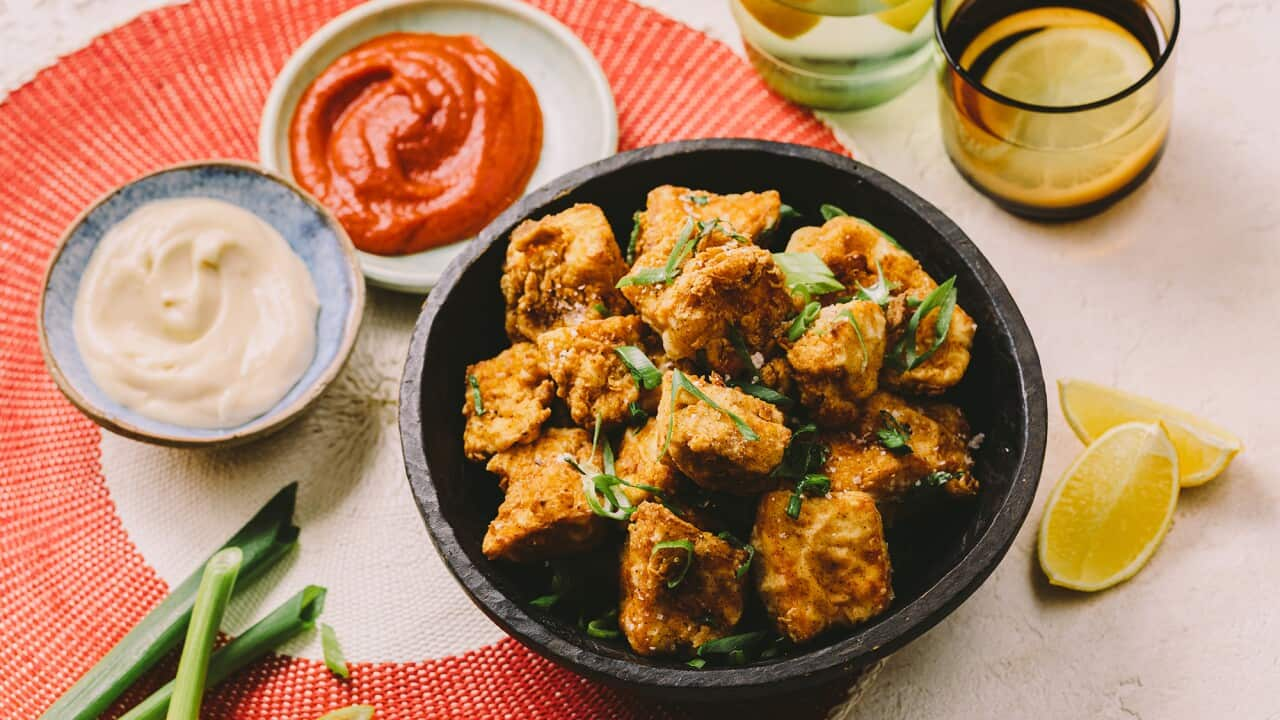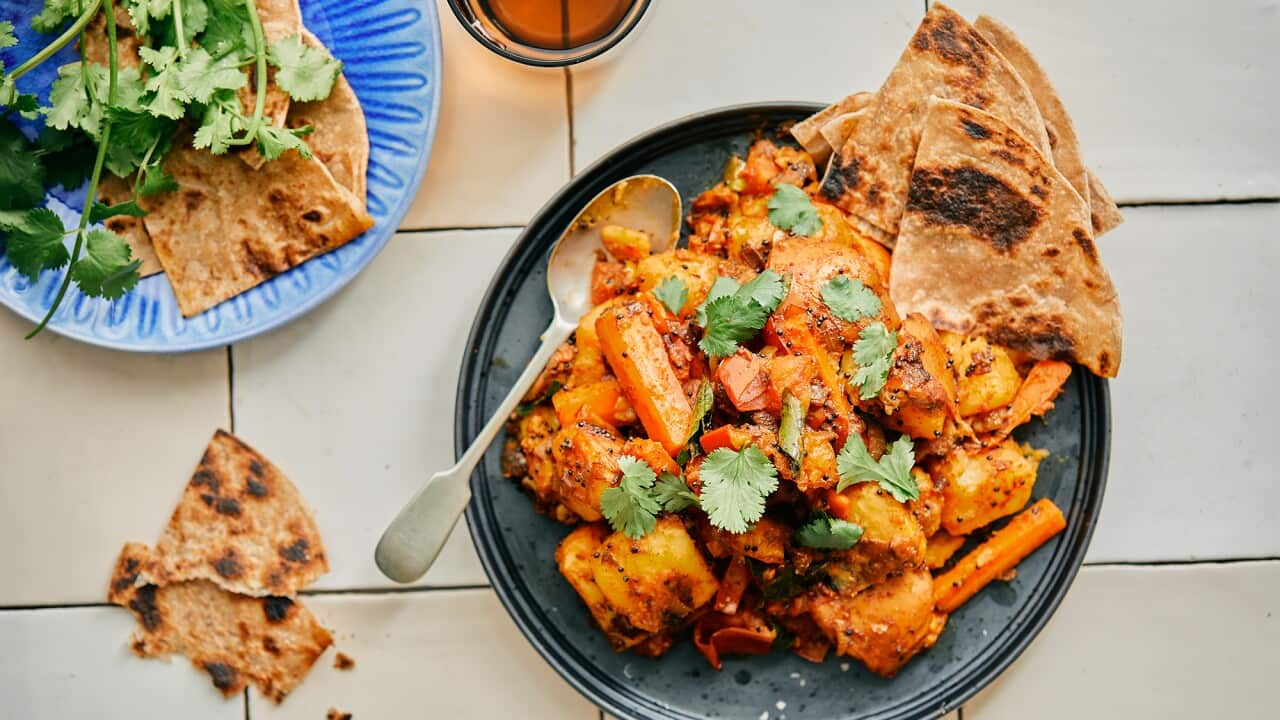serves
6-8
prep
20 minutes
cook
1:55 hour
difficulty
Easy
serves
6-8
people
preparation
20
minutes
cooking
1:55
hour
difficulty
Easy
level
Ingredients
- 250 ml (9 fl oz) olive or sunflower oil
- 2 tbsp ghee
- 3 cassia leaves or bay leaves
- 5 cm (2 inch) cassia bark or cinnamon stick
- 8–10 black peppercorns
- 7–8 cloves
- 1 black cardamom pod, lightly crushed
- 6–7 green cardamom pods, lightly crushed
- 1 tsp crushed garlic
- 1 tsp peeled, finely grated root ginger
- 450 g (1 lb) boneless lamb, from shoulder or neck or both, cut into 2.5–4 cm (1–1½ inch) pieces
- 3 medium onions, about 450 g (1 lb), chopped
- 500 ml (18 fl oz) yogurt, lightly beaten until smooth
- 4 hot green chillies, cut into 1 cm (½ inch) segments
- handful of chopped coriander leaves
- salt
- 2 dried aloo Bukhara Persian prunes, if available
- 450 g (1 lb) basmati rice
- generous pinch of ground saffron
- 1 capful (the cap of the bottle) kewda water
Soaking time 15-20 minutes
Instructions
Put the oil and ghee in a heavy-based 25 cm pan and set it over a medium-high heat. When it’s hot, add the cassia leaves and bark, peppercorns, cloves, and both types of lightly crushed cardamom pods. Stir a few times, then add the garlic and ginger. Stir once or twice, then put in the meat. Stir and fry the meat for about 5 minutes, or until it is lightly browned.
Now add the onions. Stir and cook, still over a medium-high heat, for about 5 minutes, or until the onions have softened. Reduce the heat to low and stir in the yogurt. Add the green chillies, coriander leaves, 1 tsp of salt and the aloo Bukharas, if using. Keep stirring and bring to a vigorous simmer, reducing the heat to medium-low. Cover partially and cook, stirring now and then, for 25 minutes. Uncover, stir and cook for another 10–15 minutes, or until the sauce is very thick and paste-like and the oil separates from the meat. Set aside, covered.
Meanwhile, preheat the oven to 150°C/300°F/gas mark 2. Rinse the rice in several changes of water, then leave to soak in ample fresh water for 15–20 minutes. Drain and leave in the strainer.
Bring about 5 litres of water to a boil in a large pot, the kind you use for boiling pasta. When it is boiling rapidly, add 4 tsp of salt and stir. Set a colander in the sink.
Add the rice to the rapidly boiling water. Stir to separate the grains, cover partially and return to a boil. Boil the rice for 5-6 minutes, or until a grain, when pressed hard between the fingers, has only a thin hard core at the centre and breaks into 2 or 3 pieces. Drain quickly and leave in the colander.
Tilt the pot of meat and spoon out all the fat and oil into a small bowl. Pour half of this oil into a heavy-based 25 cm ovenproof pan that has a tight-fitting lid, and spread it out. Now spread half the rice over the oil. Spoon all the meat over the rice. Sprinkle the saffron over the meat. Spread the remaining rice over the meat and then the remaining oil over the top of everything. End with the kewda water, sprinkling it over the top.
Cover tightly with foil and then the lid and place in the centre of the hot oven for 30–40 minutes, or until the rice is cooked through. Mix very gently with a slotted spoon before serving.
Cook's Notes
Oven temperatures are for conventional; if using fan-forced (convection), reduce the temperature by 20˚C. | We use Australian tablespoons and cups: 1 teaspoon equals 5 ml; 1 tablespoon equals 20 ml; 1 cup equals 250 ml. | All herbs are fresh (unless specified) and cups are lightly packed. | All vegetables are medium size and peeled, unless specified. | All eggs are 55-60 g, unless specified.









